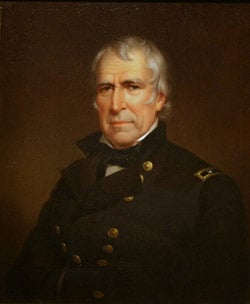John Quincy Adams was the sixth President of the United States. He was the son of John Adams, who was the second president of the nation. A Unitarian by religion, Adams was born on July 11, 1767.
Prior to becoming the sixth president of the U.S., Adams served his nation in different capacities such as the Member of the U.S. House of Representatives, the 8th United States Secretary of State, United States Ambassador to the United Kingdom, United States Ambassador to Russia, United States Senator from Massachusetts, United States Ambassador to Prussia, and United States Ambassador to the Netherlands.
John Quincy Adams served as the 8th United States Secretary of State for almost eight years (1817-1825).
Early Life of John Quincy Adams
John Quincy Adams was born in Quincy, Massachusetts. His father was John Adams and his mother was Abigail Adams. He is one of the two father-son Presidents of the U.S., the other being George W. Bush. Adams studied in Leiden University and Harvard University. He became a graduate in 1788 and after completing his studies, he visited many countries including Sweden, Finland, and Denmark. At the age of just 26, Adams was designated as United States Ambassador to the Netherlands. In 1797, Adams became a Fellow of the American Academy of Arts and Sciences. Subsequently, he was designated as United States Ambassador to Germany. He married Louisa Catherine Johnson on July 26, 1797 in London, United Kingdom.
Presidential Life
John Quincy Adams became member of different parties such as Democratic-Republican, Federalist, National Republican, and subsequently Whig and Anti-Masonic parties. As United States Secretary of State, he played a key role in preparing the Monroe Doctrine. In the 1824-25 United States Presidential Election, he entered the contest and the other candidates were William H. Crawford, John C. Calhoun, Andrew Jackson, and Henry Clay. On the day of election, Andrew Jackson emerged victorious, however, he could not get the essential number of electoral votes. According to the Twelfth Amendment, the House of Representatives chose John Quincy Adams as the sixth President of the United States. He also attained the support of Henry Clay, another presidential candidate. After leaving office, he served as a Member of the U.S. House of Representatives.
Facts |
|
|---|---|
| Full Name: | John Quincy Adams |
| Date of Birth: | July 11, 1767, Braintree, Massachusetts |
| Died on: | February 23, 1848, Washington, D.C. |
| Burial site: | First Unitarian Church, Quincy, Massachusetts |
| Parents: | John and Abigail Smith Adams |
| Spouse: | Louisa Catherine Johnson (1775-1852; m. 1797) |
| Children: | George Washington (1801-1829); John II (1803-1834); Charles Francis (1807-1886); Louisa Catherine (1811-1812) |
| Religion: | Unitarian |
| Education: | Harvard College (B.A., 1787) |
| Profession(s): | Lawyer |
| Government ranks: | Minister to the Netherlands, Prussia, and Russia; U.S. Senator and representative (Mass.); peace commissioner at the Treaty of Ghent; secretary of state under James Monroe |
| Political Party: | Democratic-Republican |
| President Term: | March 4, 1825-March 4, 1829 |
| Age when assumed office: | 57 |
Outcome of the Elections |
|||
|---|---|---|---|
| 1824 | Presidential / Vice Presidential Candidates | Popular Votes | Electoral Votes |
| John Quincy Adams (Democratic-Republican) | 108740 | 84 | |
| Andrew Jackson (Democratic-Republican) | 153544 | 99 | |
| William H. Crawrford (Democratic-Republican) | 47136 | 41 | |
| Henry Clay (Democratic-Republican) | 46618 | 37 | |
Presidential Term and its details |
|
|---|---|
| Dates: | March 4, 1825-March 4, 1829 |
| Vice President: | John C. Calhoun (1825-29) |
Snapshot of John Quincy Adams’s life |
|
|---|---|
| 1767 | Born in Massachusetts |
| 1775 | American Revolutionary War begins |
| 1787 | Earns degree from Harvard College |
| 1790-94 | Works as attorney in private practice in Boston |
| 1794-97 | Serves as minister to Holland |
| 1796 | Father John Adams elected president |
| 1797-1801 | Serves as minister to the Court of Prussia |
| 1803-8 | Serves in the U.S. Senate as a Federalist from Massachusetts; recalled by special election in 1808 |
| 1809-15 | Serves as minister to Russia during presidency of James Madison |
| 1812 | War of 1812 begins |
| 1815-17 | Serves as minister to Great Britain; negotiator of Treaty of Ghent, which ended the War of 1812 |
| 1817-24 | Serves as U.S. Secretary of state; writes the Monroe Doctrine |
| 1825-29 | Serves as sixth U.S. President |
| 1831-49 | Serves in the U.S. House of Representatives from Plymouth District, Massachusetts |
| 1841 | Serves as co-counsel on the Amistad case argued before the U.S. Supreme Court, delivering the closing argument |
| 1844 | Successful in rescinding a Congressional gag rule on slavery |
| 1846 | Opposes U.S. Conflict with Mexico |
| 1848 | Dies in Washington, D.C. |

